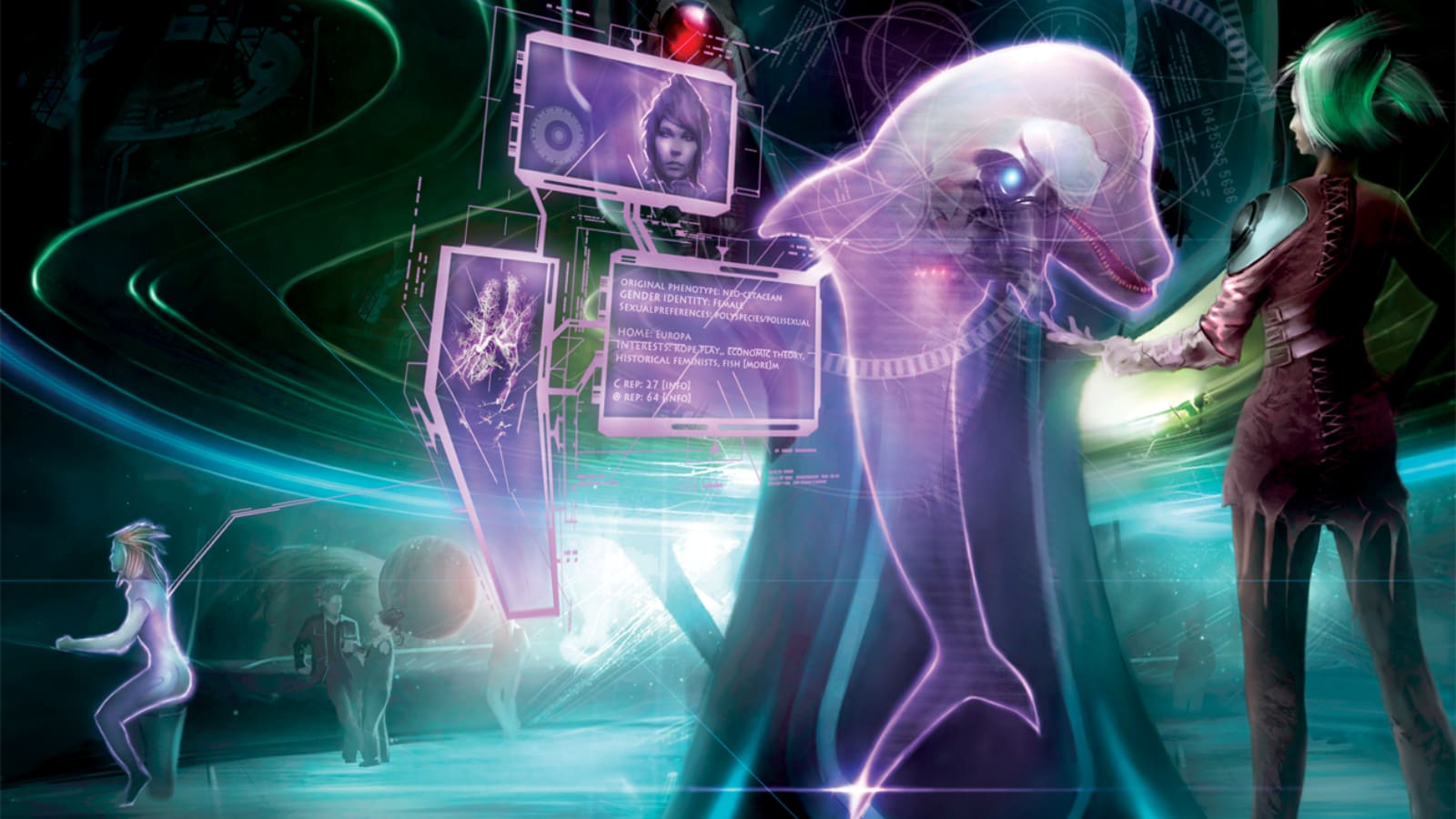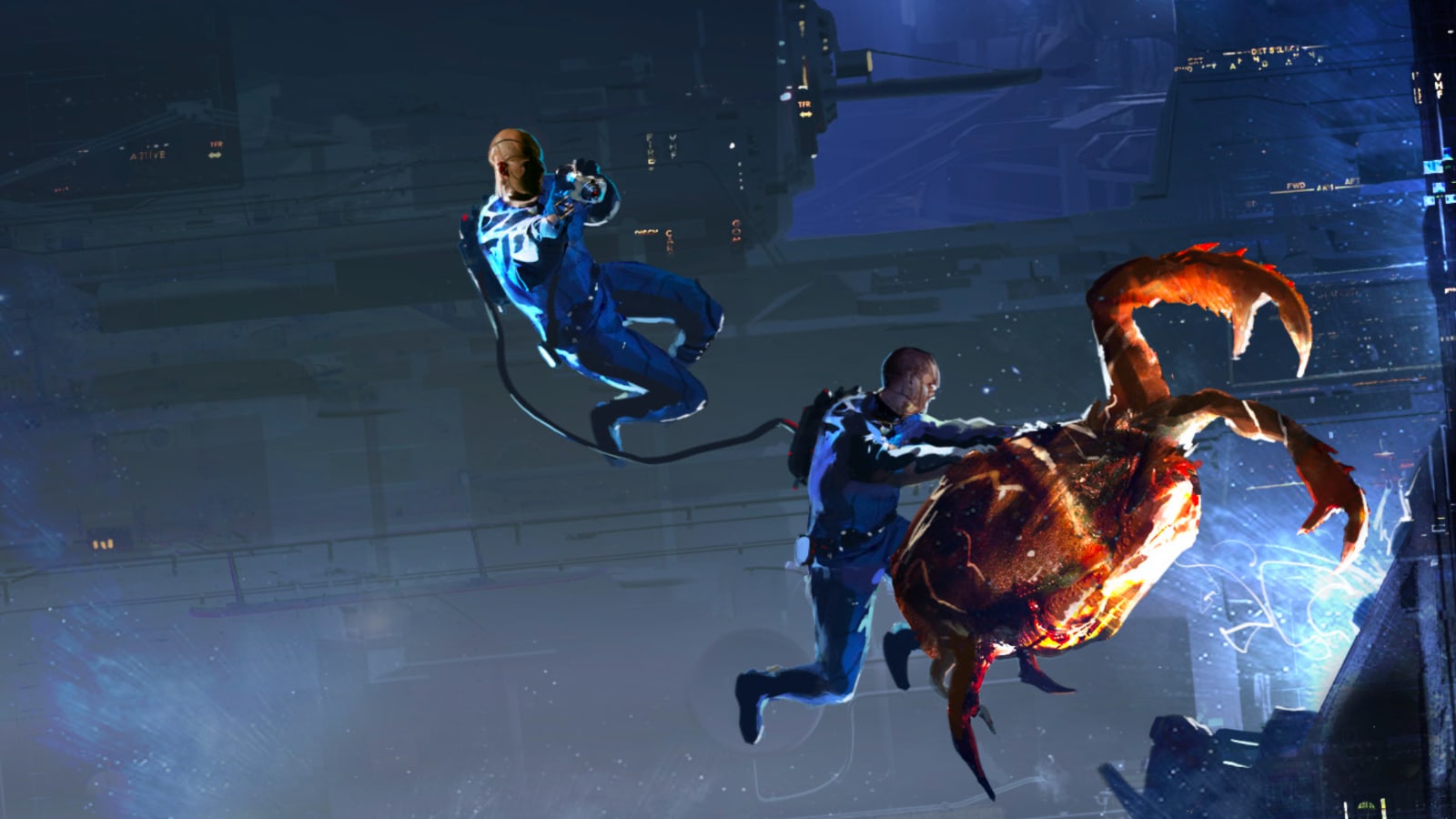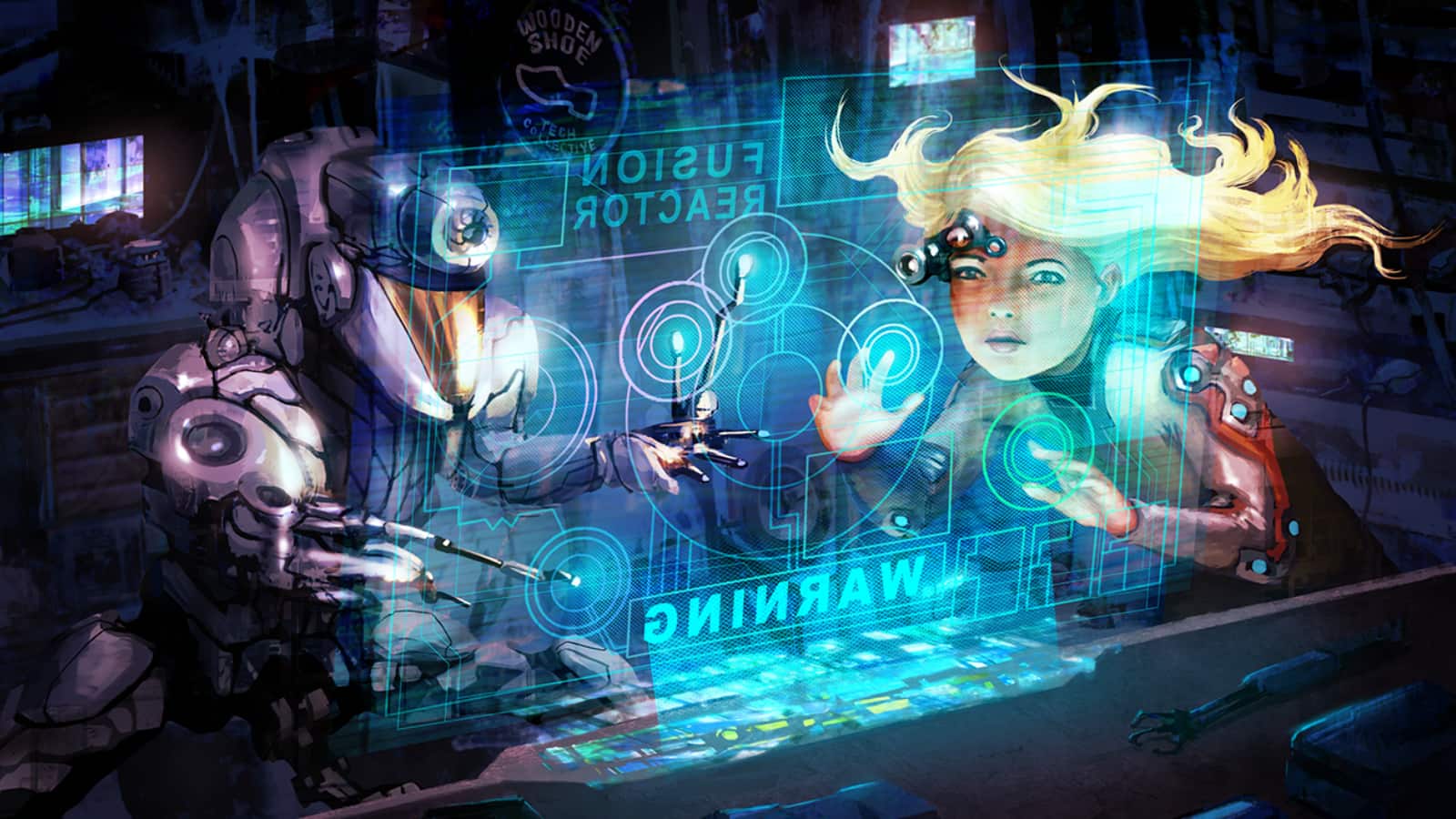
The Eclipse Phase setting can prompt thoughtful gamers to explore their assumptions about political, social, and economic structures in a context of wild adventure.
I posted this article in March, 2023, and created a video version in January, 2024. You can either read the post below or watch it in video form.
A new wave of educators encourages forking as a way for children to acquire an education without also limiting the amount of creative and play time time they need each day. Schools in agreement with this policy handle all daily lessons with online forks, which are merged at the end of the day with the physical primary who has spent the day playing.
That’s an excerpt from Multiplicity & Synthesis, a short but densely-packed supplement for Eclipse Phase 2e.
The game is sometimes maligned for jamming many science fiction tropes into a single setting, and Eclipse Phase really does have it all: rogue AIs that destroyed Earth, separability of mind (ego) from body (morph), egocasting, ego backups, ego forking, artificial morphs, uplifts, mysterious aliens, and interstellar gates. But what Eclipse Phase does most gloriously is showcase how myriad social and political arrangements within the same setting are affected by and influence technology.
Rethinking the Past, Rethinking the Future
The game is post-apocalyptic, in the sense that transhumanity last lost Earth to the AIs. And if there’s a failing of most post-apocalyptic fiction it’s that as the pieces get put back together again, the survivors revert to the social and political forms that led to the apocalypse. There are always autocrats, there’s always some form of representative democracy, and nation-states tend to reassert themselves rather quickly.

Eclipse Phase instead asks, what if when the world they knew got wiped out, people came up with all kinds of ways to live together, some of them quite familiar, some radically new, and some that couldn’t even be contemplated without (literally) mind-bending technology?
While new technology is pretty easy to envision, it often seems to be much more difficult to imagine with any degree of specificity political and cultural systems that aren’t just rehashes of that which has come before. Or to be more specific, what we think has come before. We tend to think of the past as a gradual climb out of primordial unsophisticated roaming clans, to cities run by brutal strongmen, to empires run by more sophisticated strongmen, to more enlightened societies run by bankers and politicians.
But that’s not the case. Societies have organized themselves in an array of varying and sophisticated patterns in the past, and surely could do so in the future. There’s no reason to believe that sprawling representative democracies and globe-spanning corporations represent the end of the line for human social and economic development, any more than monarchies and feudalism.
Truly Differentiated Factions
Eclipse Phase reveals a Solar System in which economic and political arrangements are coupled to beliefs about technology:

Inner System
- The old-school capitalists of the Lunar-Lagrange Alliance adhere to pre-Ruin notions of nationality, and the superiority of biological bodies.
- In the Morningstar Constellation a representative democracy runs things. Everyone is given a basic income, digital consciousnesses and uplifts can be citizens, and intellectual property rights are narrow and brief in duration.
- The Martian nationalists of the Tharsis League are led by the League Congress, which holds many crosscutting political factions. Hypercorps operate freely, and cultural norms regarding technology use are generally open, but vary by locale.
Outer System
- The Jovian Republic is nominally ruled by a democratically-elected Senate, but the Republic maintains the most powerful military in the System, and the Security Council holds the real power. Fear of the rogue technology that destroyed Earth is strong. The Roman Catholic Church has huge influence – resleeving, digital consciousnesses, and uplifts are forbidden in the Republic, and scientific research is closely monitored.
- In the Titanic Commonwealth all collective decisions are made through instant voting of all citizens. There are no restrictions on citizenship for digital consciousnesses or uplifts, and use of forks is not restricted. The Commonwealth owns the microcorps that power its economy, and profits are reinvested to address collective needs. It also fields a strong military.
Anarchists & Fellow Travelers
- Anarchists have created many highly-individualized forms of governance, but they all emphasize horizontal power-sharing, individual autonomy, and communal ownership. There are no corporations or capitalism in Anarchist habitats.
- Some Anarchists have banded together with other anti-authoritarians in a dispersed, informal self-defense network. They are not interested in forming a cohesive political entity, but they collaborate to keep the two large power bases in the System off their backs.
- In Extropian habitats, which were established by self-proclaimed anarcho-capitalists, interactions between individuals and groups are managed wholly by contracts. There is no government, and contracts can cover exchanges prohibited elsewhere. Intellectual property holds no sway. As long as you’re not breaking a contract you made, anything goes.
In addition to this melange of socio-political entities, numerous social movements operate throughout the Solar System, from the science-advocating Argonauts to the Bioconservatives to the Ayn Rand-ian Ultimates.
Embrace the Friction
The game has taken heat because of the authors’ predisposition to transhumanism and antipathy toward capitalism. But in order to enjoy the setting I don’t have to buy into the idea that we should all live forever, or that it would ever be possible for us to separate mind from body, or that a reputation economy would be better than the one we have. I’d also much rather have a setting that makes me think than a soulless, anodyne collection of conventional ingredients.
![]()
Eclipse Phase is a world in which people (using the term broadly) are experimenting with how to best live together, and they are not all coming up with the same answers. Conflict is everywhere, even before you get to the space horror that the game is ostensibly about. It’s a fantastic, well-developed realm for exploring, and provides so many hooks for GMs who want to go beyond normal, bland sci-fi tropes.
Ω
Image Credits
All Eclipse Phase images were cropped from originals provided by copyright holder Posthuman Studios, under CC BY-NC-SA 4.0 license.
- Public Profile, by Danijel Firak
- Uncredited
- Anarchist Hackers, by Nathan Geppert
- Panopticon Cover, by Stephan Martiniere
Notes
For more about how ancient societies were far more sophisticated and varied than most of us have been taught, check out The Dawn of Everything: A New History of Humanity, by David Graeber and David Wengrow. Like Eclipse Phase, it’ll make you think, even if you don’t agree with all of it.

